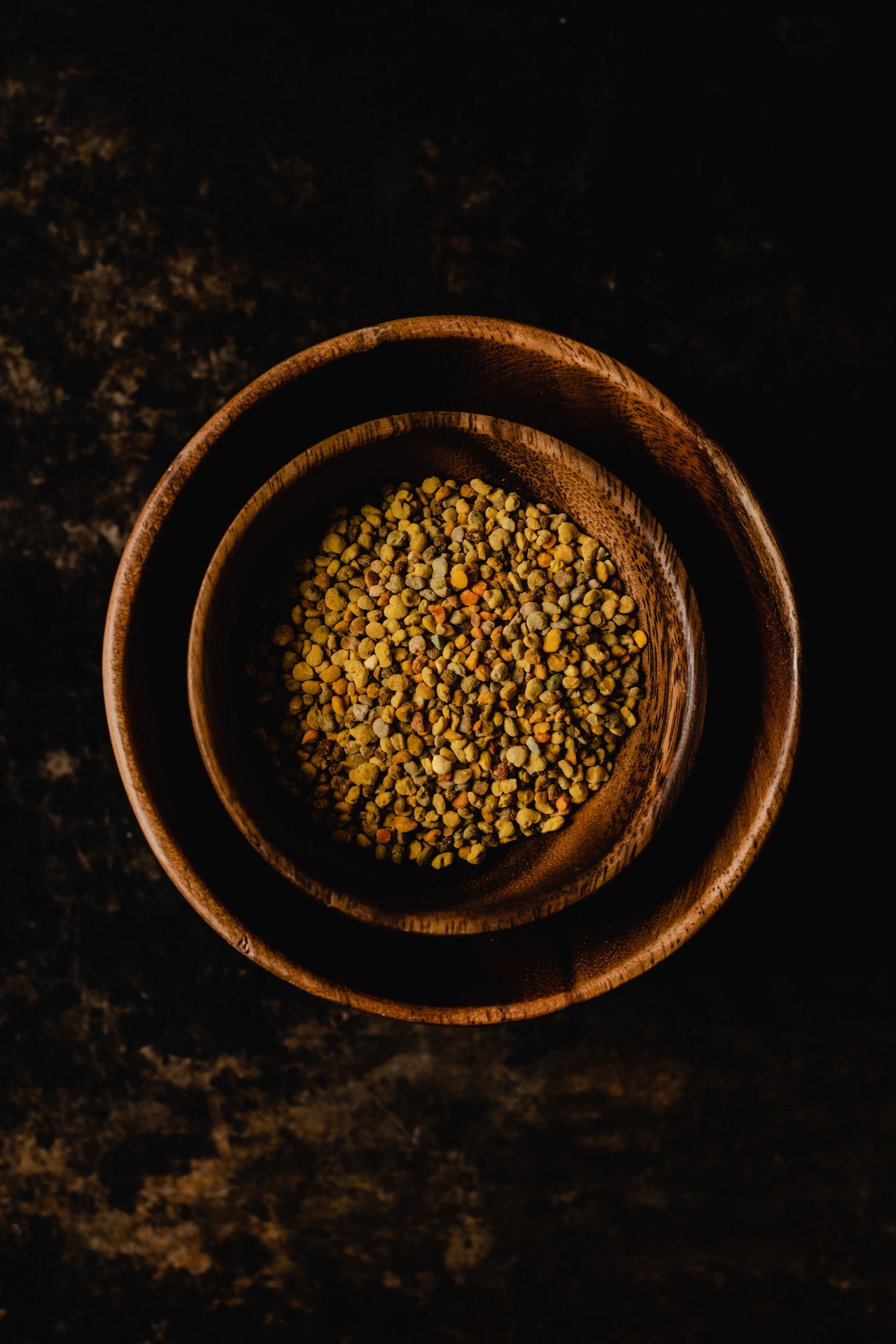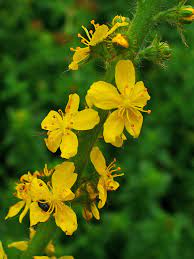Introduction: Bee pollen, often referred to as the “nectar of the gods,” is a remarkable substance collected by honeybees from various flowering plants. As a professional herbalist, I consider bee pollen to be a valuable addition to any herbal medicine cabinet. This comprehensive Materia Medica aims to provide an in-depth understanding of bee pollen’s properties, uses, and precautions for those seeking to harness its therapeutic potential.
Botanical Classification:
- Kingdom: Animalia
- Phylum: Arthropoda
- Class: Insecta
- Order: Hymenoptera
- Family: Apidae
- Genus: Apis
- Species: Apis mellifera (European honeybee)
Harvesting Bee Pollen: Bee pollen is collected by worker bees as they forage for nectar and pollen. They use their specialized leg structures to pack pollen grains into pellets. These pellets are stored in the hive’s pollen baskets until they return to the hive.
Constituents: Bee pollen is a complex substance, rich in a wide array of nutrients and bioactive compounds, including:
- Vitamins (e.g., A, B complex, C, D, E, K)
- Minerals (e.g., calcium, magnesium, zinc, selenium)
- Amino acids (all essential amino acids)
- Enzymes (e.g., amylase, lipase)
- Carbohydrates (predominantly glucose and fructose)
- Fats (primarily unsaturated)
- Proteins (comprising about 40%)
- Plant sterols
- Flavonoids
- Antioxidants
- Trace elements
Therapeutic Properties:
- Nutrient-Rich: Bee pollen is a potent source of vitamins, minerals, and amino acids, making it a valuable dietary supplement.
- Antioxidant: Its high flavonoid content contributes to its antioxidant properties, protecting cells from oxidative damage.
- Anti-Inflammatory: Bee pollen has been used traditionally to alleviate inflammatory conditions.
- Immune Support: Regular consumption may help strengthen the immune system.
- Allergy Alleviation: Some believe that bee pollen can desensitize the body to allergens, although this should be approached cautiously.
- Energy Boost: The nutrient content in bee pollen can provide an energy boost.
- Digestive Aid: Enzymes in bee pollen may aid digestion.
Traditional Uses:
- Boosting Stamina: Bee pollen has been used by athletes to enhance endurance and energy levels.
- Skin Health: It may support healthy skin due to its nutrient profile.
- Respiratory Health: Some herbalists suggest it for respiratory conditions.
- Fertility Support: Traditional beliefs suggest bee pollen may support fertility.
Precautions:
- Allergies: Bee pollen can cause severe allergic reactions in some individuals. People with pollen allergies, asthma, or allergies to bee products should avoid it.
- Purity: Ensure you source high-quality, pesticide-free bee pollen.
- Contaminants: Bee pollen can contain contaminants from environmental pollution or agricultural chemicals, so choose a reliable source.
- Dosage: Start with a small dose to test for allergic reactions.
Dosage:
- Start with a small daily dose, about 1/4 to 1/2 teaspoon, and gradually increase.
- Some individuals may consume up to 1-2 tablespoons daily.
Methods of Administration:
- Direct Ingestion: Sprinkle on cereals, yogurt, or blend into smoothies.
- Infusion: Steep bee pollen in warm water or tea.
- Topical Use: Mix with honey for facial masks or skin treatments.
Conclusion: Bee pollen, with its rich nutritional profile and therapeutic potential, can be a valuable addition to a holistic health regimen. However, it’s crucial to exercise caution, especially if you have allergies. Consult with a qualified herbalist or healthcare professional before incorporating bee pollen into your diet or treatment plan, and always source it from reputable suppliers to ensure purity and safety. This Materia Medica serves as a general reference and should not replace professional advice.







It’s always nice to come across great content such as this. Keep up the good work.